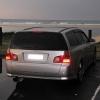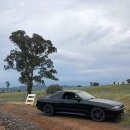Tried All Things But Failed
Announcements
-
Similar Content
-
Latest Posts
-
Dashcams Australia (13/05/25) captured JDMHSE (Vic plate) being a right tosser.
-
Wish someone would start a racing series for Group A replica cars, a bit like Touring Car Masters but for 1985 onwards and not grandpa's falcon and/or Monaro. I know they race in some historic class but that's for original cars, no replicas allowed.
-
By hardsteppa · Posted
It's a great tool to have, even if you only use it a few times. Cheap and does the job far better than a spanner on there. -
That M3 looks like it handles so well, initial slight understeer on turn in followed by oversteer which is cancelled out as steering returns to centre. Looks like such a fun car to drive. In comparison the Skyline and Sierra look like they understeer more and thus need more heavier steering inputs...?
-
Gday on the hunt for an rb25 gearbox and clutch to go into my R32 rb25/30 build happy to travel a bit or pay for freight for the right one From my limited research, think I need an rb25 driveshaft yoke to make it fit so I’m after one of those too located Bathurst
-










Recommended Posts
Create an account or sign in to comment
You need to be a member in order to leave a comment
Create an account
Sign up for a new account in our community. It's easy!
Register a new accountSign in
Already have an account? Sign in here.
Sign In Now